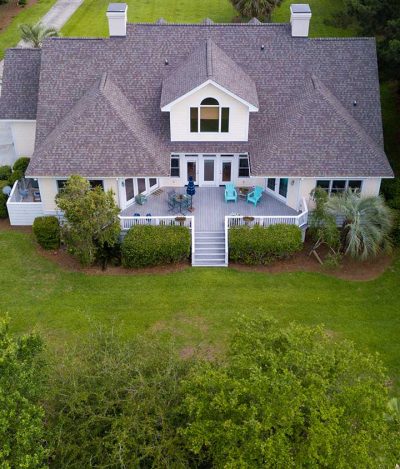Commercial Roofing: Protecting Your Investment
The roof of your commercial building is more than just a cover – it’s a vital investment. It safeguards your property, inventory, and even the well-being of your employees. A failing roof can lead to a cascade of problems, including costly business disruptions, water damage to your equipment and products, and even potential safety hazards.
Proper roof maintenance and choosing the right roofing system from the start are crucial for protecting your investment and ensuring the smooth operation of your business. This page is designed for commercial property owners and property managers to navigate the world of commercial roofing. We’ll explore the different types of commercial roofing systems available, discuss the factors to consider when choosing a roof, and provide tips for extending the lifespan of your commercial roof.
A World of Options: Commercial Roofing Systems
Unlike residential buildings with their pitched roofs, most commercial buildings have flat or low-slope roofs. Flat roof systems are the primary roofing option for commercial properties due to their practicality and ease of installation. Here, we’ll delve into three of the most common flat roof materials used in commercial buildings:
- Built-up roofs (BUR): These traditional systems consist of multiple layers of asphalt and reinforcing fabrics. BUR roofs are known for their durability and affordability but require more maintenance compared to some other options.
- Modified bitumen: This roofing system uses asphalt modified with polymers, offering greater flexibility and resistance to cracking than traditional BUR roofs. Modified bitumen roofs are a popular choice for their durability, water resistance, and relative ease of maintenance.
- Thermoplastic polyolefin (TPO): TPO is a single-ply membrane known for its energy efficiency and durability. TPO roofs are reflective, helping to reduce cooling costs in hot climates, and are also resistant to punctures and tears.
While flat roof systems are the most common, other options like metal roofs and even green roofs are possibilities for commercial buildings, depending on your specific needs and aesthetic preferences.
Choosing the Right Roof for Your Business
Selecting the right commercial roofing system requires careful consideration of several factors:
- Building structure: The weight and load capacity of your building’s structure will influence the type of roofing system you can choose.
- Budget: Commercial roofing systems vary in cost. Consider your budget while also factoring in the long-term value proposition, including maintenance requirements and lifespan.
- Desired lifespan: Different roofing materials have varying lifespans. Consider how long you plan to own the property and choose a roof that aligns with your timeline.
- Climate: The weather conditions in your area will play a role in selecting the most suitable roofing material. For example, TPO roofs are well-suited for hot climates, while modified bitumen offers good performance in areas with wider temperature variations.
Consulting a qualified commercial roofing contractor is essential for making an informed decision. They can assess your specific needs, recommend the most appropriate roofing system for your building, and ensure proper installation for optimal performance and longevity.
Extending the Lifespan of Your Commercial Roof
Just like any investment, proper care is essential for maximizing the lifespan of your commercial roof. Regular preventative maintenance is key to catching and addressing potential problems early on, preventing minor issues from escalating into costly repairs. Here are two key preventative maintenance tips:
- Schedule regular inspections: Have your commercial roof inspected by a qualified professional at least twice a year, or more often in areas prone to harsh weather conditions. These inspections can identify minor leaks, tears, or ponding water before they cause significant damage.
- Clear debris from the roof: Regularly remove leaves, branches, and other debris from your roof. Debris accumulation can trap moisture and lead to rot or mold growth beneath the roofing membrane.
By following these tips and consulting with a qualified roofing professional, you can ensure your commercial roof provides reliable protection for your business for years to come.
Conclusion
A reliable roof is fundamental for the success of your commercial property. By understanding the different types of commercial roofing systems, the factors to consider when making your choice, and the importance of preventative maintenance, you can make informed decisions to safeguard your investment and ensure the smooth operation of your business. Contact Southern Guard Roofing today to discuss your commercial roofing needs and schedule a free consultation!



